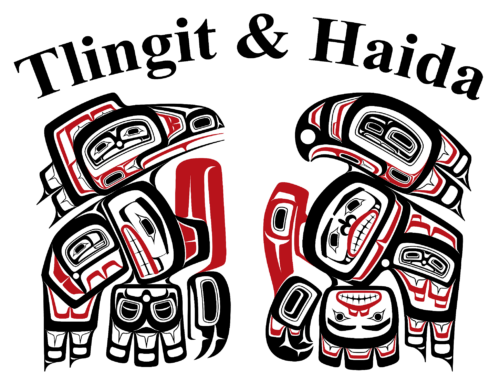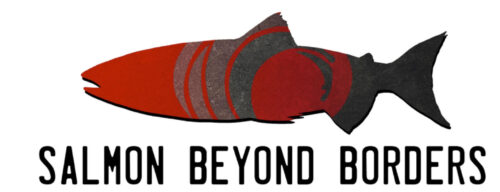
Alaska Tribal Interests, Salmon Organizations Reflect Concern Over B.C. Transboundary Mining Interests

The following press release is courtesy of Salmon Beyond Borders, Sealaska and Tlingit & Haida Indian Tribes of Alaska:
Tlingit & Haida, Sealaska, Alaska Lawmakers, Salmon Beyond Borders deliver reality check to B.C. officials, amplify calls for Biden Administration to act NOW
JUNEAU, AK—The Central Council of the Tlingit & Haida Indian Tribes of Alaska (Tlingit & Haida), Sealaska, members of the Alaska State Legislature, and Salmon Beyond Borders today urged immediate federal action on British Columbia’s (B.C.’s) continued industrialization of the headwaters of the T’aak? (Taku), Shtax’héen (Stikine) and Jóonax (Unuk) rivers without the consent, or sometimes even the knowledge, of Tribes, Native corporations, fishermen, and communities downstream. Seven Southeast Alaska Tribes, including Tlingit & Haida, and nine Southeast Alaska municipalities have called on President Joe Biden to immediately secure two things: a temporary pause on all new B.C. mine permits until all of those impacted have had a meaningful say in the future of shared salmon rivers, and a permanent ban on B.C.’s mine waste dams near Alaska-B.C. transboundary salmon rivers. Finally, members of the Alaska State Legislature announced a letter that will be sent to the U.S. Secretary of State Antony Blinken, in support of these requests from their constituents, urging the Biden Administration to take swift action.
“As Indigenous people of these lands, we belong to these rivers as much as they belong to us,” said Richard Chalyee Éesh Peterson, President of Tlingit & Haida. “As our Vice Presidents Sanderson and Micklin and our Executive Council have always made clear – and what we made very clear to the British Columbia Ministry representatives this morning, it is unacceptable that British Columbia has not reached out to Tlingit & Haida, the largest federally-recognized tribe in Alaska, to address our concerns regarding the rivers that have sustained us for tens of thousands of years. We are committed to working with British Columbia to ensure they understand the scope of their impacts and our expectations, and we will continue to urge President Biden and the U.S. government to demand a permanent ban on British Columbia’s mine waste dams in transboundary rivers and a temporary pause to new mining development in rivers that directly impact our traditional territories until we, the impacted Indigenous and Aboriginal governments on both sides of the political border, can finally, and rightfully, lead on the management of the rivers that feed us.”

“Alaska’s coastal people have been salmon people for thousands of years. When we take care of our oceans and rivers they will take care of us. As the original stewards of these lands and waters we are still very much here,” said Sealaska Board Chair Joe Nelson. “As ancient people living in a modern world, we have a fiduciary duty to protect our way of life for the generations yet to come.”
“The U.S.-Canada political border that runs through the Taku, Stikine, and Unuk Rivers has divided several Indigenous Nations for over 100 years,” said Tis Peterman of Wrangell, a descendant of Chief Shakes. “As a Tlingit-Tahltan woman born and raised at the mouth of the Stikine River, my hope is that we members of Indigenous Nations on both sides of the border will come together once again to co-steward the shared rivers of our homelands. As Native people, we care about clean water, wild salmon, and each other.”
“Our wild salmon, clean water, sustainable economies, and ways of life in Southeast Alaska are too valuable to gamble with, especially when the science is clear that B.C.’s massive mine waste dams will fail, just like they have before. These dams are ticking time bombs that rival the size and scale of the proposed Pebble mine in Bristol Bay,” said Breanna Walker, director of Salmon Beyond Borders. “We urge the Biden Administration to listen to Tribes, communities, fishermen, lawmakers, and individual Alaskans, and take swift action under the Boundary Waters Treaty to ensure that its investments in collaborative, sustainable paths forward in Southeast Alaska are not undone by British Columbia’s reckless pursuit of risky gold mines and toxic mine waste dams upriver.”
Background:
The T’aak? (Taku), Shtax’héen (Stikine) and Jóonax (Unuk) watersheds, which flow from the glaciated boreal forests of northern British Columbia into the temperate rainforest of Southeast Alaska, total about 35,000 square miles of some of the last remaining wild salmon habitat left on Earth. Together, these iconic rivers and their watersheds are about the size of Portugal, and have been centers of culture, commerce, and biodiversity for tens of thousands of years. The Taku is the largest roadless watershed on the West Coast of North America; the Stikine is the fastest free-flowing river in North America. These rivers are home to all five species of wild Alaska salmon, brown bears, moose, Dolly Varden, hooligan, steelhead, and many other species significant for cultural and economic well-being. These rivers have nourished Indigenous peoples since time immemorial. Now, the Taku, Stikine, and Unuk rivers account for nearly $50 million in economic activity annually in Alaska and are integral to the overall $1 billion annual salmon fishing industry and $1 billion annual visitor industry in the region.
Just over the political border, British Columbia, Canada (B.C.) has more than two dozen large-scale mines – ranging from abandonment to advanced exploration, development or operation – in the spawning and rearing headwaters of these shared salmon watersheds.
B.C.’s track record is exemplified by:
- The 2014 mine waste dam failure at Mount Polley in the Fraser River watershed;
- The decades-long contamination from the abandoned Tulsequah Chief mine in the transboundary Taku watershed;
- The lack of required consent for mining in traditional territories, and B.C.’s lack of meaningful engagement with sovereign Tribal nations in Alaska;
- B.C.’s more than $1 billion Canadian shortfall for cleanup of mines post-closure;
- B.C.’s lack of analysis of cumulative effects from multiple mines; and more.
Almost 20% of these watersheds overall are staked with B.C. mineral claims and tenures.
Almost 90% of the B.C. side of the Jóonax River is staked with B.C. mineral claims and tenures. And yet, Tribes, fishermen and Alaskans downstream have no meaningful voice in the future of rivers that are key to jobs, food security and way of life.
A pathway towards solution that has been requested by thousands of Southeast Alaskans involves a reference to the International Joint Commission, or IJC. This Commission was established under the U.S.-Canada Boundary Waters Treaty of 1909. This international process can bring together federal and sovereign governments and communities on both sides of the political border to prevent and resolve concerns related to shared waterways.

Additional materials:
Members of the Alaska State Legislature will issue their own press release. Keep an eye out.
Rivers that Feed Us fact sheet
Map of Taku, Stikine and Unuk mineral tenures
Tlingit & Haida Resolution (EC 22-68: To Protect Our Transboundary Waters and Way of Life)
An expert analysis last year highlighted that six of B.C.’s riskiest massive mine waste dams are located on transboundary systems – and are predicted to “destroy ecosystems and/or kill people when they fail.”
For media use of b-roll and images of the transboundary region, please contact mc@salmonstate.org.
Recordings of the press conference are available upon request. Reach out to mc@salmonstate.org.
The Central Council of the Tlingit & Haida Indian Tribes of Alaska (Tlingit & Haida) is the largest federally recognized Tribe in the State of Alaska, representing 35,000 tribal citizens worldwide. Tlingit & Haida’s mission is to preserve our sovereignty, enhance our economic and cultural resources, and promote self-sufficiency and self-governance for our citizens.
Salmon Beyond Borders is an Alaska-based campaign working with fishermen, business owners, community leaders, and concerned citizens, alongside Tribes and First Nations on both sides of the Alaska-B.C. border, to defend and sustain our transboundary wild salmon rivers, jobs, and way of life.
Sealaska is a for-profit Alaska Native Corporation owned by more than 25,000 Tlingit, Haida, and Tsimshian shareholders. We draw inspiration from our shared heritage to protect our community’s greatest and most important resources – the oceans, forests, and people of Southeast Alaska. We hope these stories of our people, communities, and partners working together with purpose and pride will inspire others to join us.



